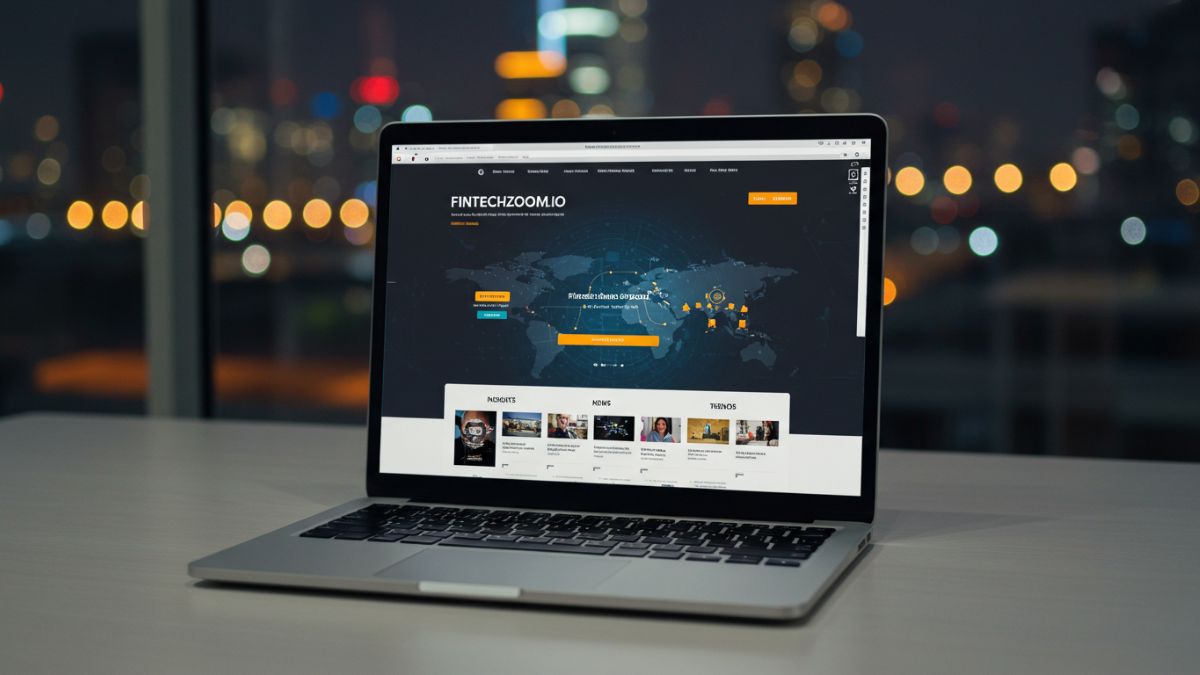Finance
How can EBIDA be used to assess the value and health of a business?

In the world of finance, acronyms abound, and one that’s gaining traction is EBIDA. But what is EBIDA, and why should business owners and investors care? EBIDA, which stands for Earnings Before Interest, Depreciation, and Amortization, is a powerful tool for assessing a company’s financial health and value. Let’s dive into how this metric can provide crucial insights into a business’s performance and potential.
-
Understanding the Basics:
EBIDA is a financial metric that measures a company’s operational profitability by excluding the effects of financing and accounting decisions. Unlike its more famous cousin EBITDA, EBIDA includes taxes in its calculation. This inclusion can provide a more realistic picture of a company’s earnings, especially in industries where tax considerations play a significant role in business decisions.
Lantern by SoFi states, “EBIDA measures a company’s financial performance before the influence of accounting or financial decisions, such as how much debt (interest) the business has taken on or how much money it has invested in property, equipment, or licenses (depreciation/amortization).”
-
Comparing Apples to Apples: Industry Benchmarking
One of EBIDA’s strengths is its ability to facilitate comparisons between companies across different industries. By removing the impact of interest, depreciation, and amortization, EBIDA allows a clearer view of a company’s operational efficiency. This makes benchmarking against competitors and industry standards easier, providing valuable context for assessing a business’s performance.
-
Spotting Financial Red Flags
EBIDA can be a valuable tool for identifying potential financial troubles. A declining EBIDA over time might indicate operational issues that need addressing. Conversely, a steadily increasing EBIDA suggests improving operational efficiency. Tracking this metric over time allows business owners and investors to spot trends and take action before minor issues become big problems.
-
Valuation Insights: A Snapshot of Earning Potential
Regarding business valuation, EBIDA offers a snapshot of a company’s earning potential. It provides a clearer picture of the cash flow available to service debt and fund growth initiatives. EBIDA is particularly useful in mergers and acquisitions, where potential buyers want to understand a company’s true operational profitability.
-
Financial Planning and Goal Setting
EBIDA can be a valuable tool for financial planning and goal setting. By understanding EBIDA and its calculation, business owners can set realistic targets for improving operational efficiency. It can guide decisions on cost-cutting measures, pricing strategies, and growth initiatives to boost this crucial metric.
While EBIDA is a powerful tool, it’s important to remember that it’s just one piece of the financial puzzle. It should be used with other financial metrics and qualitative factors to understand a business’s health and value comprehensively. Additionally, because EBIDA excludes significant expenses, it shouldn’t be used to assess a company’s ability to service debt or fund capital expenditures.
In conclusion, EBIDA offers a valuable lens for a company’s operational performance and potential. By understanding and leveraging this metric, business owners, investors, and financial professionals can make more informed decisions, set meaningful goals, and drive business success. Whether you’re valuing a company for sale, assessing investment opportunities, or simply trying to improve your business’s performance, EBIDA is a tool worth mastering.
Finance
Exploring fintechzoom .io: Your Ultimate Guide to Financial Technology Insights

Welcome to the exciting world of fintechzoom .io technology, where innovation meets convenience. As traditional banking continues to evolve, fintech has emerged as a powerful force reshaping how we manage money, invest, and conduct transactions. Among the key players in this dynamic landscape is Fintechzoom.io—an invaluable resource for insights into the fast-paced realm of financial technology.
Whether you’re a seasoned professional seeking industry trends or a curious individual eager to understand how fintech can improve your life, Fintechzoom.io offers something for everyone. With its wealth of information and user-friendly interface, diving into the depths of financial tech has never been easier. Let’s explore what makes this platform essential for anyone looking to stay ahead in today’s digital economy.
The Growth of Financial Technology
Financial technology has experienced explosive growth in recent years, transforming the way people and businesses manage their finances. Technological advancements have paved the way for a diverse range of services, from mobile banking apps to blockchain solutions.
Consumers now expect seamless digital experiences. They want instant access to their accounts and intuitive platforms that simplify transactions. This growing demand is driving innovation across the landscape.
Moreover, startups are disrupting traditional financial institutions by offering tailored solutions that cater to modern needs. These nimble players often leverage AI and machine learning to enhance customer service and streamline processes.
Regulatory changes have also played a role in this evolution. Governments worldwide are recognizing the importance of fintech, fostering an environment where new ideas can flourish while ensuring consumer protection remains a priority.
As we continue into this digital era, it’s clear that financial technology will only expand further, shaping our economic future significantly.
Fintechzoom .io Features and Benefits
Fintechzoom .io offers a wealth of features that cater to both individual users and businesses. Its user-friendly interface makes it easy for anyone to navigate, even those new to financial technology.
One standout feature is the comprehensive news aggregator. Users receive real-time updates on market trends, innovations, and regulatory changes impacting the fintech landscape.
Additionally, Fintechzooms .io provides insightful analytics tools. These resources help users make informed decisions based on data-driven insights.
The platform also hosts a community forum where members can share experiences and strategies. This collaborative environment fosters learning from peers in the industry.
Moreover, tailored content recommendations ensure that users stay updated with topics relevant to their interests or business needs. With personalized newsletters and alerts, staying ahead in the fast-paced fintech world becomes effortless.
All these features combine to create an invaluable resource for anyone looking to thrive in financial technology.
Case Studies: Successful Companies Utilizing Fintechzoom .io
Various companies have harnessed the power of fintechzoom .io to revolutionize their operations. For instance, a leading investment firm utilized its insights to streamline portfolio management. By analyzing trends and consumer behaviors, they made data-driven decisions that significantly improved returns.
Another success story comes from a payment processing company. They implemented tools from fintechzooms .io to enhance security measures and reduce transaction times. This not only boosted customer satisfaction but also increased their market share.
A rapidly growing startup in personal finance relied on fintechzooms .io for trend analysis. The platform helped them identify gaps in the market, allowing them to tailor services directly addressing user needs.
These examples showcase how diverse organizations are leveraging fintechzooms .io’s resources effectively. Their innovative approaches highlight the platform’s ability to adapt across various sectors within financial technology.
How to Use Fintechzoom .io for Your Financial Needs
Navigating fintechzoom .io is straightforward. Start by creating an account to access a wealth of resources tailored for your financial needs.
The platform offers in-depth articles, expert analysis, and market trends. Browse through various categories to find information that resonates with your interests or concerns.
Utilize the search function to quickly locate specific topics related to investments, personal finance, or emerging technologies. This feature saves time and helps you stay informed on relevant issues.
Engage with community discussions as well. Sharing experiences can provide insights not found in traditional sources and enhance your understanding of complex subjects.
Consider setting up alerts for news updates in areas that matter most to you. Staying proactive ensures you’re always one step ahead in the fast-paced world of finance.
Potential Risks and Limitations of Fintechzoom .io
While Fintechzoom .io offers valuable insights, users should be aware of certain risks. Data security is paramount in the digital finance realm. Although the platform implements protective measures, no system is entirely immune to breaches.
Additionally, reliance on third-party data can lead to inaccuracies. Misleading information may affect decision-making processes for businesses and individuals alike.
Another aspect to consider is market volatility. Financial technology trends evolve rapidly, making it challenging to keep up with changes that could impact strategies or investments.
User experience varies widely. While some find the interface intuitive, others might struggle with navigation or functionality issues that hinder effective use of resources available on Fintechzooms .io.
Future of Fintechzoom .io and the Financial Technology Industry
The future of fintechzoom .io is poised for remarkable growth within the financial technology landscape. As digital finance becomes increasingly embedded in everyday life, platforms like fintechzoom .io will adapt to meet evolving consumer needs.
Emerging technologies such as artificial intelligence and blockchain are set to enhance the platform’s capabilities. This evolution promises improved analytics and personalized services, making financial insights more accessible than ever before.
Ecosystem partnerships will play a crucial role in fintechzoom .io’s trajectory. Collaborating with banks, startups, and tech innovators can create a robust environment for developing cutting-edge solutions that challenge traditional banking models.
Moreover, regulatory frameworks may shift as governments recognize the importance of innovation in finance. Staying ahead of compliance while delivering exceptional user experiences will be essential for sustaining growth in this dynamic sector.
As we look forward, it’s clear that fintechzooms .io has significant potential to redefine how individuals and businesses interact with their finances.
Conclusion:
As we navigate the evolving landscape of financial technology, platforms like fintechzoom.io emerge as powerful allies. They provide essential insights that can shape strategies and guide decisions.
Users are constantly seeking reliable information to stay ahead in a competitive market. Fintechzoom.io meets this need with its diverse range of features tailored for various audiences.
Adopting such tools not only enhances your understanding but also opens doors to innovation within your financial pursuits. Staying informed is no longer optional; it’s imperative for success.
FAQ’S
What is fintechzoom.io?
Fintechzoom .io is a comprehensive platform dedicated to providing insights into the latest trends in financial technologies. It focuses on delivering news, research reports, and analysis that can help users navigate this complex sector.
How does fintechzoom.io benefit users?
The primary benefits include access to up-to-date information on emerging technologies. Users can stay informed about market developments, regulatory changes, and innovative startups that could impact their investments or business strategies.
Is there a cost associated with using fintechzoom.io?
While many resources on fintechzoom .io are accessible for free, some premium content may require subscriptions or fees. It’s best to explore the site to understand what’s available at no cost versus paid options.
Finance
Exploring the Life and Career of matt danzeisen: A Profile in Finance

One such figure is matt danzeisen. With a career that spans various sectors of the financial landscape, Danzeisen has made significant contributions while navigating challenges along the way. His story is one of perseverance, strategic thinking, and a commitment to making a difference both professionally and personally. Whether you’re an aspiring financier or just curious about successful figures in this industry, exploring the life and career of Matt Danzeisen offers valuable insights into what it takes to thrive in today’s competitive environment. Join us as we delve deeper into his early life, notable achievements, lessons learned from both successes and setbacks, philanthropic efforts, and future aspirations.
Early Life and Education
Matt Danzeisen was born and raised in a vibrant community that fostered curiosity and ambition. From an early age, he exhibited a keen interest in numbers and problem-solving, attributes that would later define his career.
His educational journey began at a local high school where he excelled academically. Teachers recognized his potential, nurturing his analytical skills through advanced coursework. This foundation ignited a passion for finance.
Danzeisen pursued higher education at a prestigious university, earning a degree in economics. His time there was transformative; he engaged with diverse ideas and connected with like-minded peers. He participated in various finance-related clubs that further honed his expertise.
Internships during college provided invaluable real-world experience, giving him insights into market dynamics. These formative years shaped not only his knowledge but also instilled a strong work ethic—qualities essential for navigating the complexities of the financial world ahead.
Entry into the Finance Industry
Matt Danzeisen’s entry into the finance industry was marked by a blend of ambition and strategic foresight. He began his journey armed with a strong educational background, which laid the groundwork for his future endeavors.
He secured a position at a reputable financial firm shortly after graduation. It wasn’t just luck; it was hard work and perseverance that opened those doors. Matt quickly became known for his analytical skills and keen understanding of market trends.
As he navigated through various roles, Matt absorbed invaluable lessons about risk management and investment strategies. His unique approach set him apart from peers in an increasingly competitive field.
Rather than sticking to conventional paths, he explored innovative solutions to complex problems. This mindset propelled him further along his career trajectory, leading to opportunities that would define his legacy in finance.
Notable Career Achievements
Matt Danzeisen has made waves in the finance world through a series of impressive achievements. His keen insight into market trends allowed him to guide investment strategies that significantly outperformed benchmarks.
He played a key role in managing multi-billion-dollar portfolios, showcasing his ability to navigate complex financial landscapes. This expertise earned him recognition among industry peers and accolades from prestigious organizations.
Danzeisen’s innovative approach often blends traditional methods with modern technology. He has been pivotal in integrating data analytics into investment decisions, enhancing accuracy and efficiency.
His leadership has also fostered growth within teams. By mentoring young professionals, he ensures that knowledge and skills continue to evolve within the sector.
This combination of accomplishments not only highlights his individual talent but also reflects his commitment to advancing the finance industry as a whole.
Lessons Learned from Success and Failure
Success often brings a sense of validation. For Matt Danzeisen, each achievement served as a stepping stone. It reinforced the idea that strategic planning and hard work pay off.
Yet failure is equally enlightening. Learning to navigate setbacks has shaped his approach significantly. Each misstep offered insight into risk management and decision-making processes.
He emphasizes resilience when faced with challenges. The ability to adapt is crucial in finance, where markets can be unpredictable.
Networking also plays a pivotal role in growth. Relationships cultivated during tough times have proven invaluable, often leading to unexpected opportunities down the line.
Danzeisen values continuous learning—whether through formal education or personal experiences. Embracing both success and failure fosters a well-rounded perspective that influences future strategies and goals.
Philanthropy and Community Involvement
Matt Danzeisen is not just a finance professional; he is also deeply committed to philanthropy. His work focuses on empowering underserved communities and supporting educational initiatives.
Through various organizations, Matt has championed causes that promote financial literacy. He believes in equipping individuals with the tools they need to make informed decisions about their finances.
Additionally, his involvement extends to environmental conservation efforts. Recognizing the importance of sustainability, Matt supports projects aimed at preserving natural resources for future generations.
Community engagement is another priority for him. By partnering with local non-profits, he helps create opportunities for mentorship and skill development among youth.
His philanthropic endeavors reflect a belief in giving back. They are integral to his identity as a leader in both finance and community service.
Future Goals and Aspirations
Matt Danzeisen is always looking ahead. His future goals revolve around innovation in the finance sector. He aims to integrate technology with traditional practices, making the industry more accessible.
Education remains a cornerstone of his aspirations. Matt believes in empowering the next generation through mentorship programs and financial literacy initiatives. He envisions creating spaces where young talent can flourish.
Sustainability also plays a crucial role in his vision. Investing responsibly and supporting green projects are high on his agenda. The goal is not just profit but also positive change.
Community engagement will continue to shape Matt’s journey. By building strong local partnerships, he hopes to make lasting impacts beyond mere numbers on a balance sheet.
Through these pursuits, Matt seeks not only personal growth but also inspiration for others in finance to follow suit and push boundaries further than ever before.
Conclusion:
Matt Danzeisen’s journey in finance is a compelling narrative of ambition and resilience. His strategic mindset has allowed him to navigate an ever-evolving industry.
Through various experiences, he has shaped his career with remarkable insights. Each challenge faced was met with determination, leading to significant milestones that inspire many aspiring professionals today.
His commitment extends beyond the walls of corporate offices. Matt actively participates in philanthropic efforts, reinforcing his belief in giving back to the community. This holistic approach underscores his values and vision for a better world.
Finance
How myfastbroker .com Revolutionizes Online Brokerage for Investors

MyFastBroker.com stands out as a groundbreaking solution tailored to modern investors who value speed, accessibility, and efficiency.
If you’ve been searching for a tool that simplifies online trading while giving you access to cutting-edge features, you’re in the right place. This blog explores how myfastbroker .com outshines its competitors and why it could be the perfect fit for your investment needs.
Why Investors Are Turning to Online Brokerage Solutions
The way people invest has dramatically shifted. Gone are the days of relying on in-person meetings with financial advisors or long phone calls to place stock orders. Investors demand fast, reliable solutions that give them control over their portfolios. According to Investopedia, by 2023, over 60% of US traders were using online platforms for managing their assets.
The convenience of online brokerages has caused a surge, but not all platforms meet expectations. Many fail due to lack of real-time updates, cumbersome interfaces, high transaction costs, or unreliable customer support.
This is where myfastbroker .com comes into the picture, addressing common pain points and delivering innovative solutions for investors across the board.
What Makes myfastbroker .com Different?
1. Blazing-Fast Execution Speeds
Timing is everything in the world of investing. Whether you’re day trading or balancing a long-term portfolio, every second can impact your profits. myfastbroker .com prides itself on lightning-fast order execution times. With advanced technology integrated directly into trading networks, MyFastBroker ensures that users experience minimal lag, helping them capitalize on market opportunities as they arise.
For instance, imagine trying to sell a stock as it peaks. Other platforms may delay your request by a few seconds, causing you to miss out. On MyFastBroker.coms, the transaction is smooth and instantaneous.
2. Intuitive User Experience (UX)
Navigating investment platforms shouldn’t require a degree in computer science. MyFastBroker offers an exceptionally user-friendly interface designed for both novice and experienced investors.
Key interface features include:
- Easy portfolio customization for quick overviews of stocks, bonds, and ETFs.
- Dynamic drag-and-drop features, letting users personalize dashboards.
- Visual reporting tools like interactive charts for tracking performance over time.
Whether you’re an experienced investor or just getting started, the platform makes it easy to configure your account with minimal learning curves.
3. Comprehensive Financial Tools
Successful investing is built on data and foresight. MyFastBroker.coms suite of financial tools helps users make informed decisions. The platform provides:
- Real-Time Market Insights: Get access to live stock quotes, breaking news feeds, and industry trends.
- Sophisticated Research Options: Analyze historical data and backtest trading strategies to refine your future actions.
- Risk Assessment Tools: MyFastBroker calculates risk percentages for each stock, helping you build resilient portfolios.
These features not only empower investors but also make MyFastBroker an invaluable tool for vetting potential investments.
4. Affordability Without Compromise
Many brokerage platforms charge exorbitant fees that cut into your returns—everything from hidden commissions to flat fees can add up over time. MyFastBroker takes a fair and transparent approach to pricing, with:
- Low transaction costs.
- Free account creation.
- No hidden fees.
This affordability means you retain more of your profits, enabling your money to work harder for you.
5. Robust Security Measures
Trust is crucial when choosing an online brokerage platform. myfastbroker .com takes cybersecurity seriously, implementing industry-best practices to protect user data and funds. From secure socket layer (SSL) encryption to multi-factor authentication (MFA), every aspect of the platform is fortified against breaches.
Additionally, MyFastBroker complies with global financial regulations, ensuring your investments remain legitimate and protected.
How MyFastBroker Supports Every Type of Investor
One of myfastbroker .com strongest selling points is its versatility. Whether you’re a beginner taking your first steps in investing or a seasoned trader managing a diversified portfolio, the platform caters to your unique needs.
For Beginners
- Educational Materials: Learn the basics of trading through comprehensive guides and webinars.
- Demo Accounts: Practice real-time trading strategies using mock portfolios.
For Experienced Traders
- Advanced Charting Tools: Analyze market patterns and hone your investment strategies.
- API Integration: Automate your trades by integrating with external apps or systems.
Building a Community of Empowered Investors
Investing doesn’t have to be a solitary pursuit. MyFastBroker fosters a sense of connection through its investor community. Subscribers gain access to online forums, exclusive webinars, and Q&A sessions with financial experts. This collective intelligence adds another layer of value, helping investors share strategies and insights with like-minded individuals.
User Testimonials
Still not sure if myfastbroker .com is right for you? See what real users are saying:
- Jessica T., California
“MyFastBroker transformed the way I trade. The speed is unmatched, and I love how intuitive it is!”
- Mike R., New York
“I’ve tried numerous platforms, but nothing beats MyFastBroker’s tools for analyzing market trends.”
- Hannah B., London
“The risk assessment tools are a game-changer. I feel more confident than I’ve ever been with my investment choices.”
These testimonials reflect the consistent excellence MyFastBroker delivers for investors of all levels.
Conclusion
MyFastBroker.com is designed to empower investors with cutting-edge tools, lightning-fast performance, and a seamless trading experience. Whether you’re a seasoned trader or just starting your investment journey, MyFastBroker caters to your needs with features that make complex processes simple and intuitive. With glowing testimonials from users across the globe and a commitment to innovation, it’s clear why MyFastBroker remains a trusted choice for traders everywhere. Take the next step in achieving your financial goals by joining myfastbroker .com today!
FAQ’s
1. What is MyFastBroker.com?
MyFastBroker.com is an advanced online trading platform designed to help investors of all levels manage their portfolios, execute trades, and access powerful analytical tools with ease.
2. Is MyFastBroker suitable for beginners?
Absolutely! MyFastBroker offers a user-friendly interface and comprehensive resources, such as tutorials and market insights, to support new investors while empowering experienced traders with advanced tools.
3. What markets can I trade on MyFastBroker.com?
With MyFastBroker, you can trade in a variety of markets, including stocks, cryptocurrencies, forex, commodities, ETFs, and more.
-

 GENERAL1 year ago
GENERAL1 year agoDiscovering the Artistic Brilliance of Derpixon: A Deep Dive into their Animation and Illustration
-

 Posts1 year ago
Posts1 year agoSiegel, Cooper & Co.
-

 Lifestyle1 year ago
Lifestyle1 year agoPurenudism.com: Unveiling the Beauty of Naturist Lifestyle
-

 Lifestyle1 year ago
Lifestyle1 year agoBaddieHub: Unleashing Confidence and Style in the Ultimate Gathering Spot for the Baddie Lifestyle
-

 HEALTH1 year ago
HEALTH1 year agoTransformative Health Solutions: Unveiling the Breakthroughs of 10x Health
-

 Entertainment1 year ago
Entertainment1 year agoGeekzilla Podcast: Navigating the World of Pop Culture, Gaming, and Tech
-

 Entertainment1 year ago
Entertainment1 year agoKhatrimaza Unveiled: Exploring Cinematic Marvels and Entertainment Extravaganza
-

 BUSINESS1 year ago
BUSINESS1 year agoUnlocking the Secrets to Jacqueline Tortorice Remarkable Career and Accomplishments
